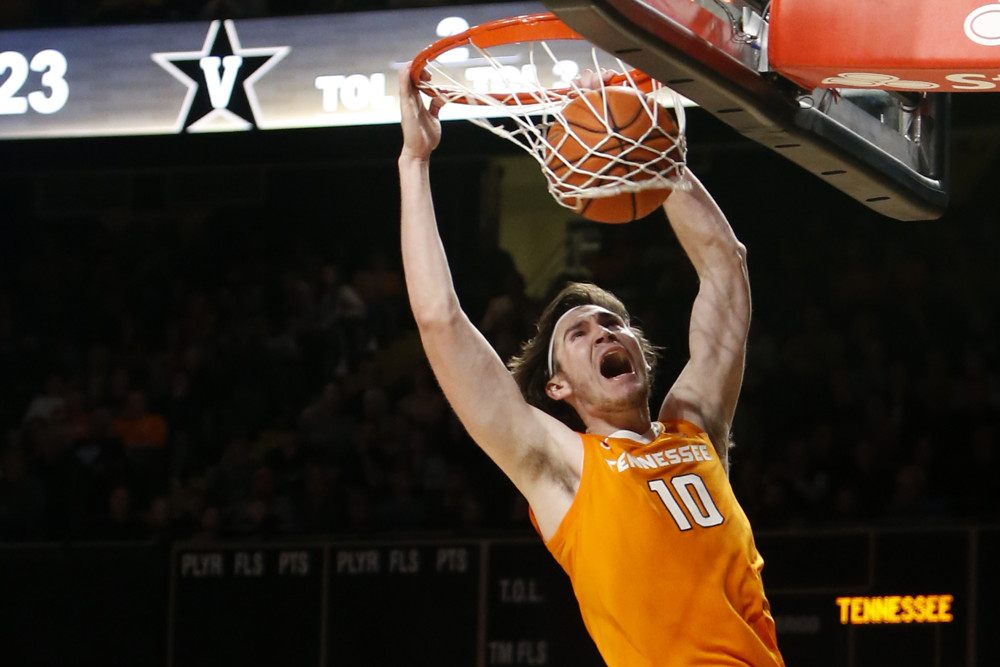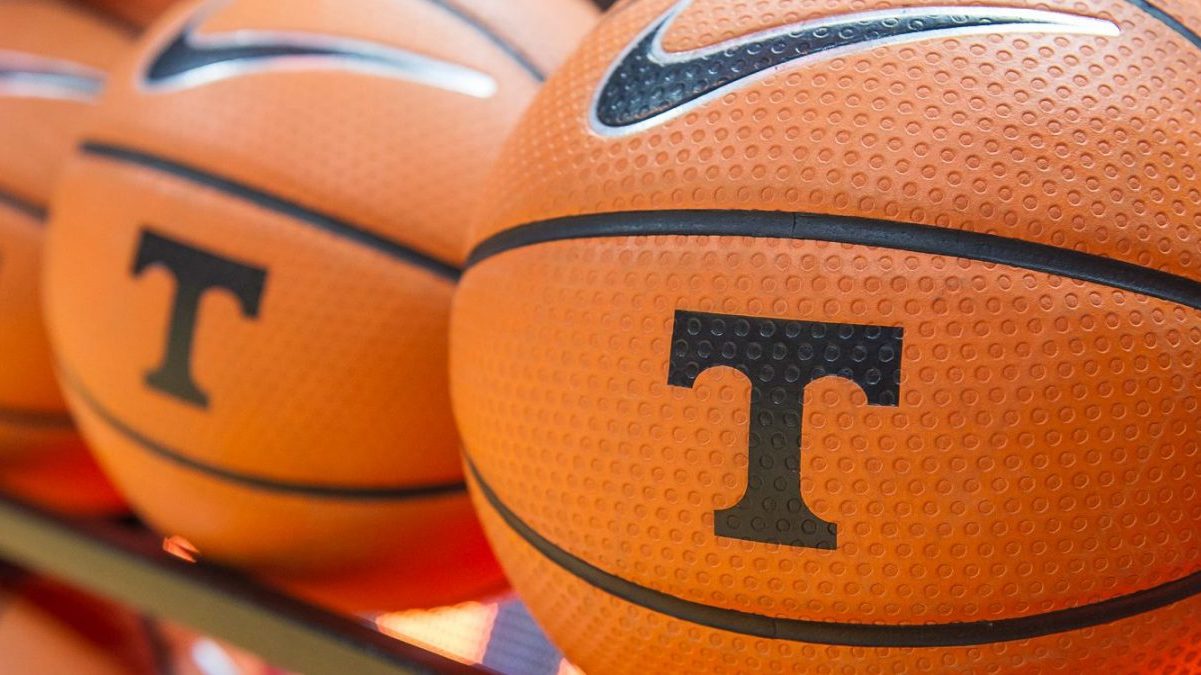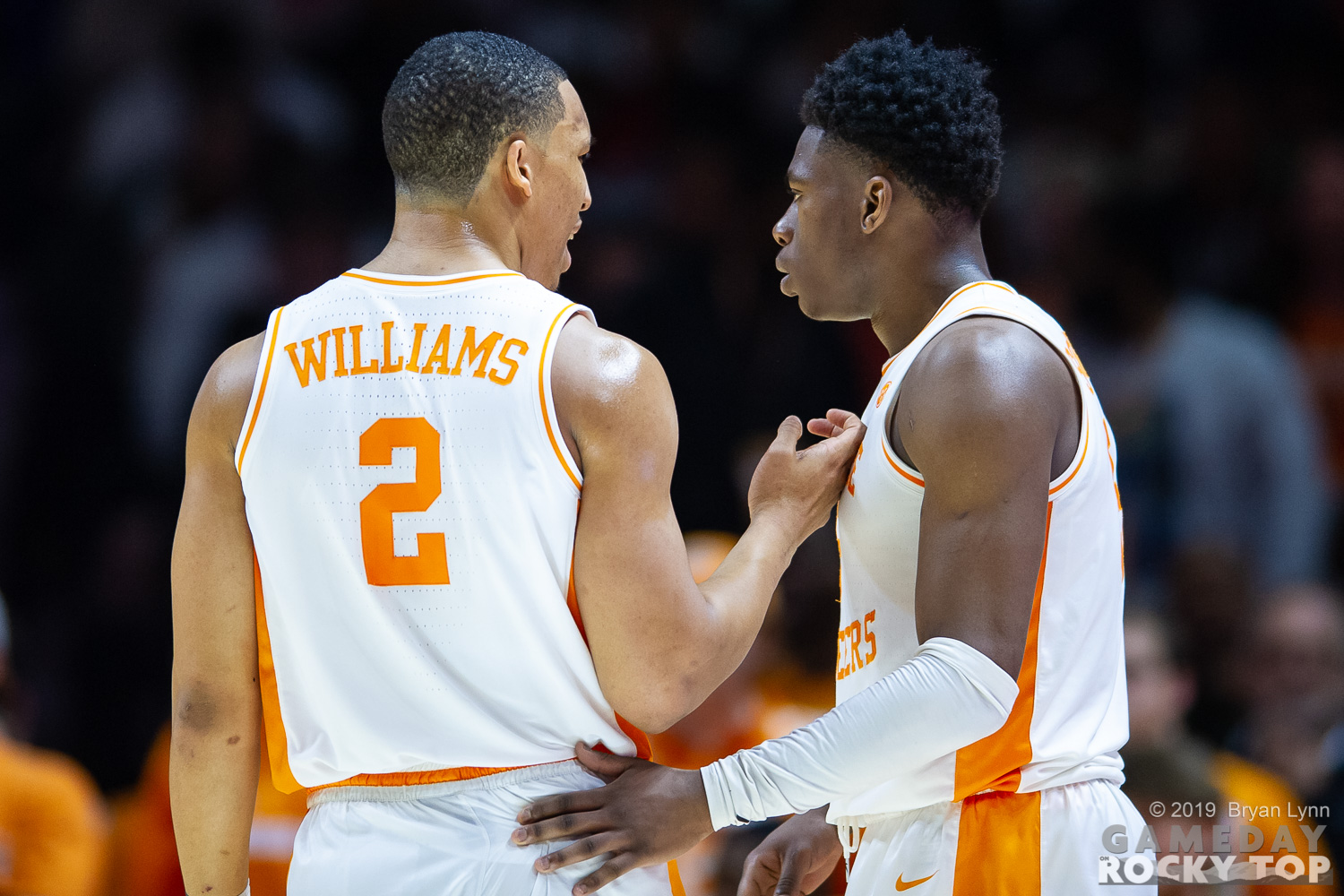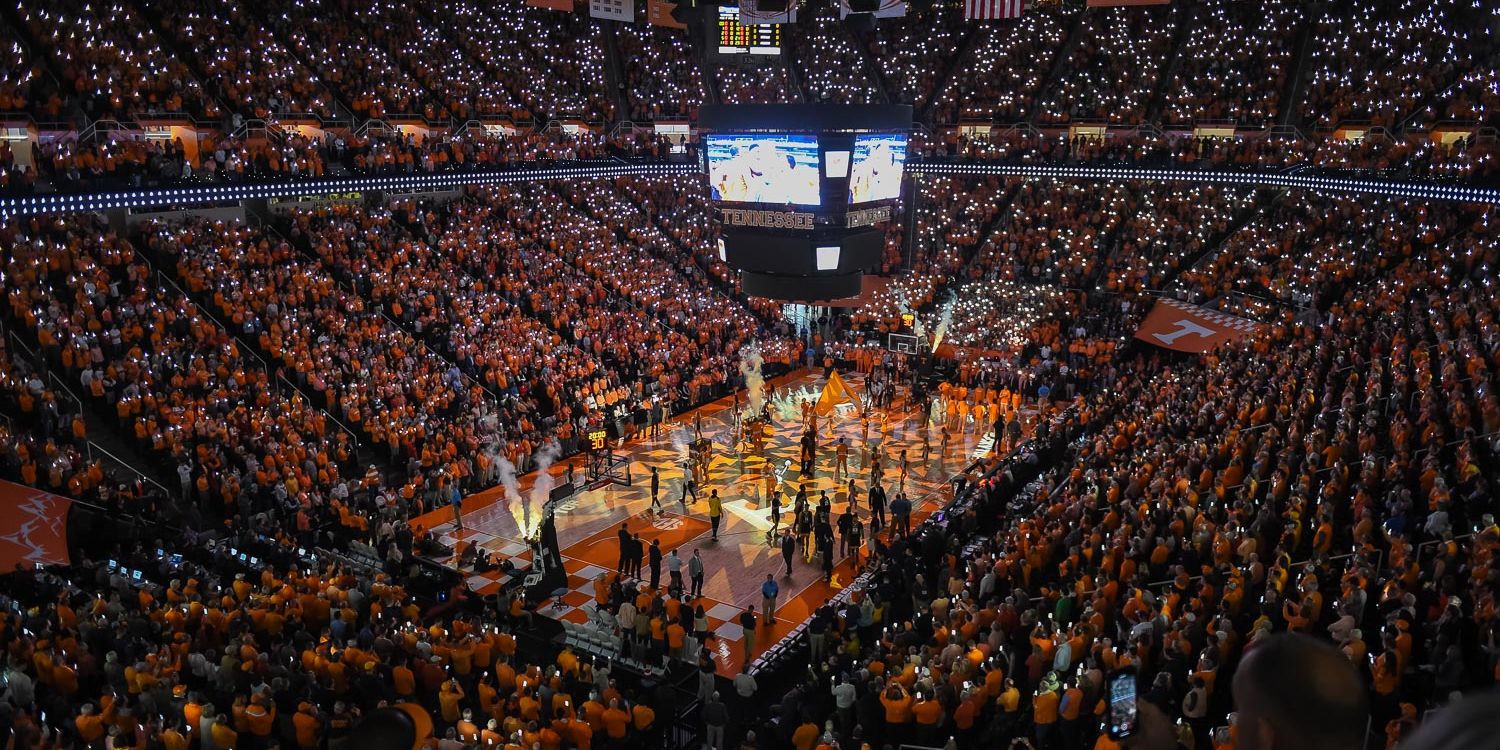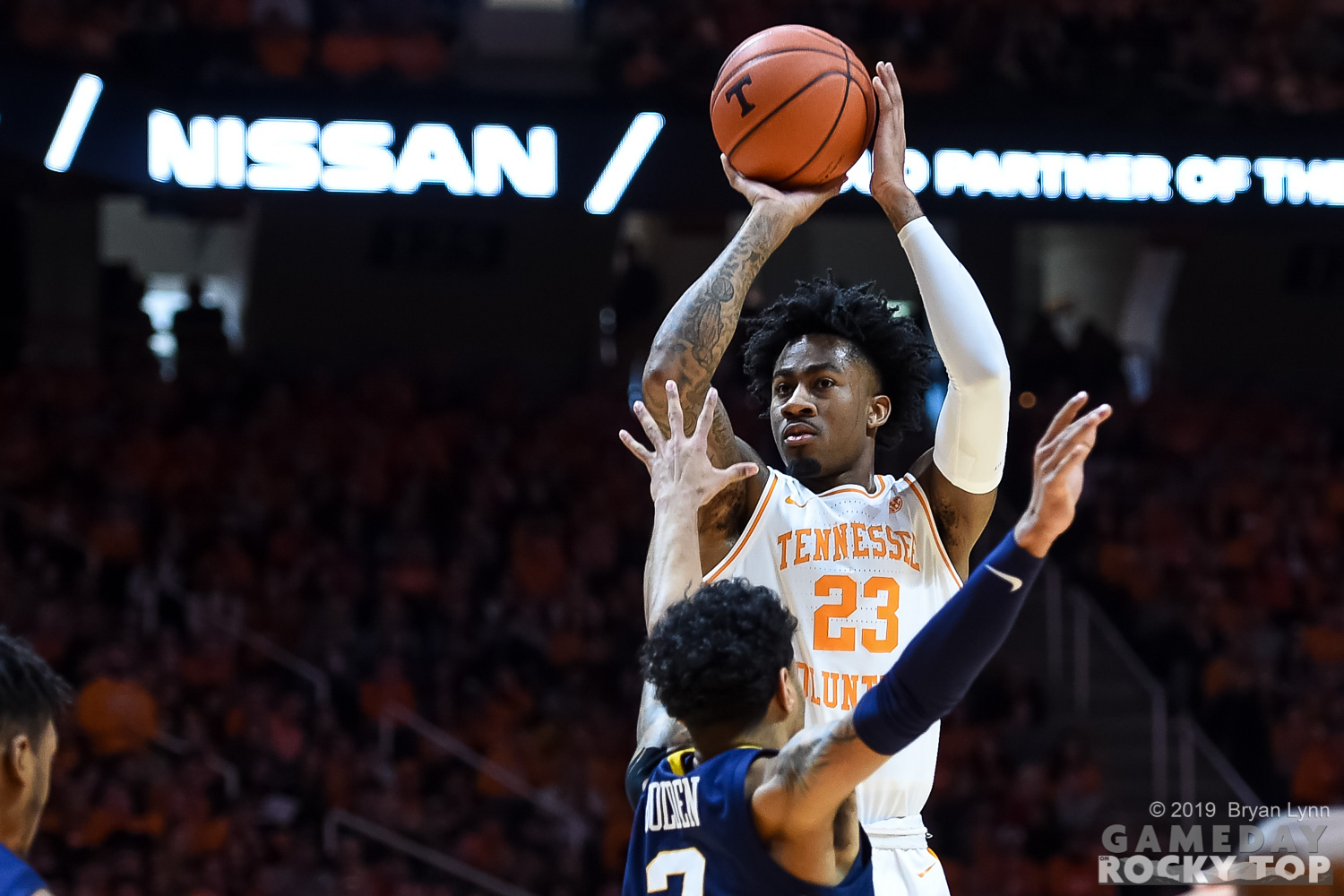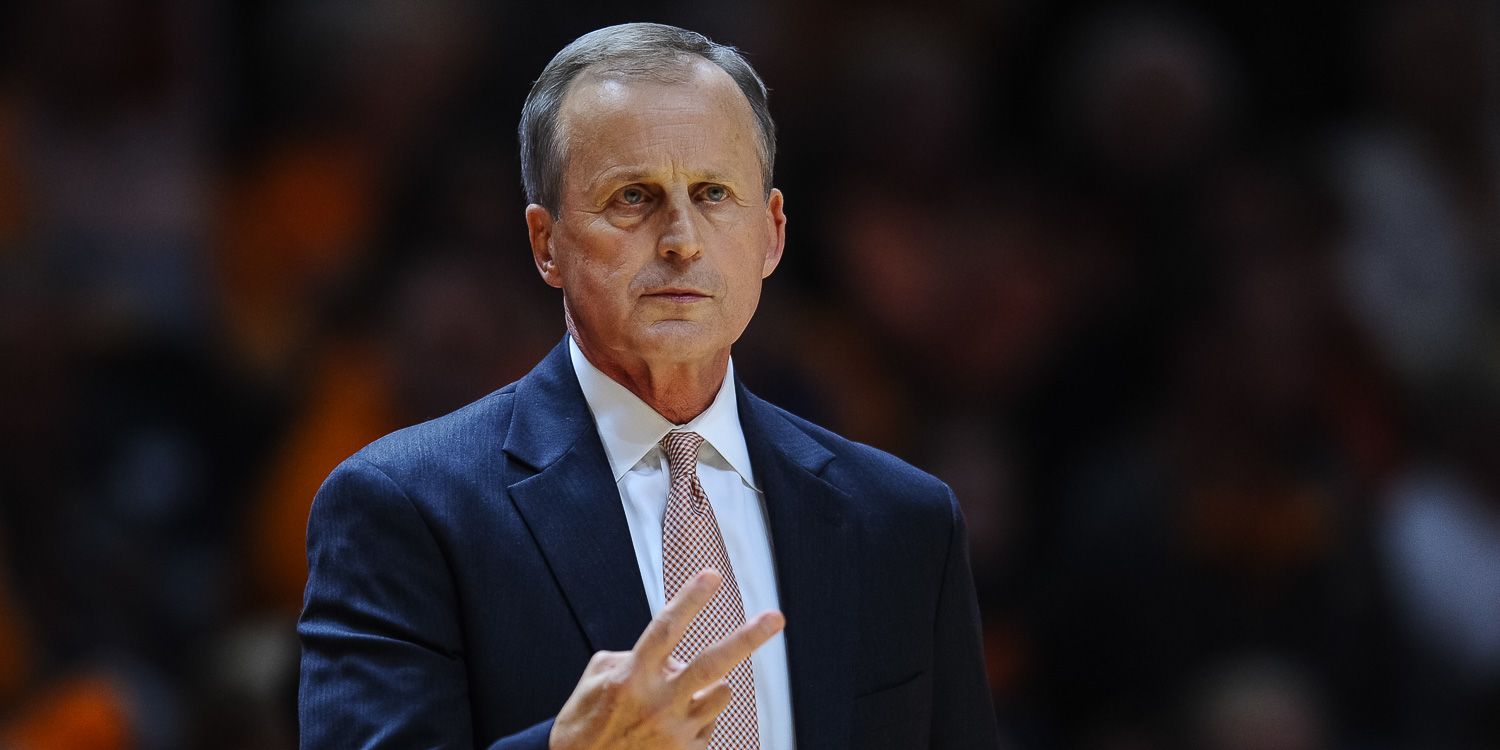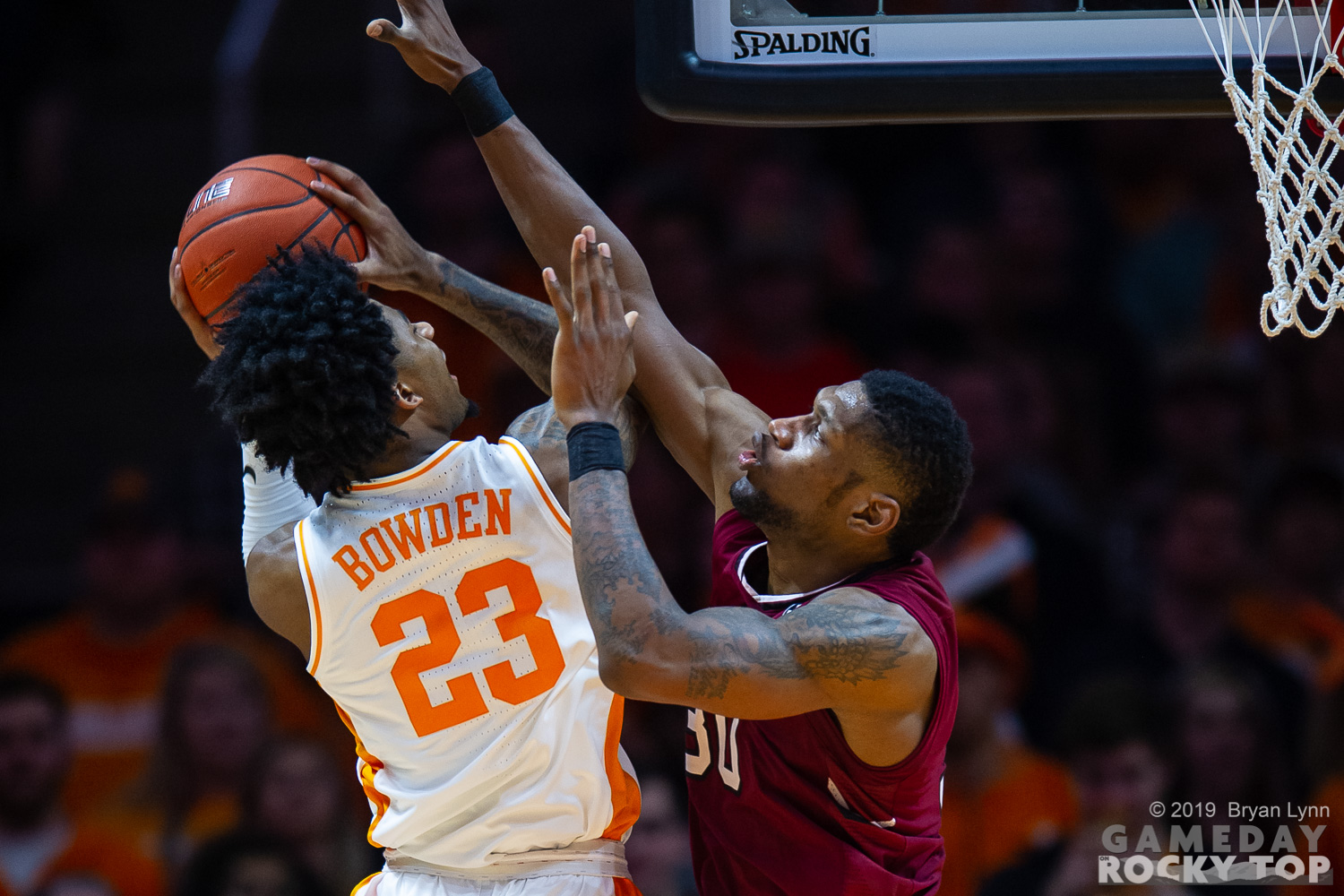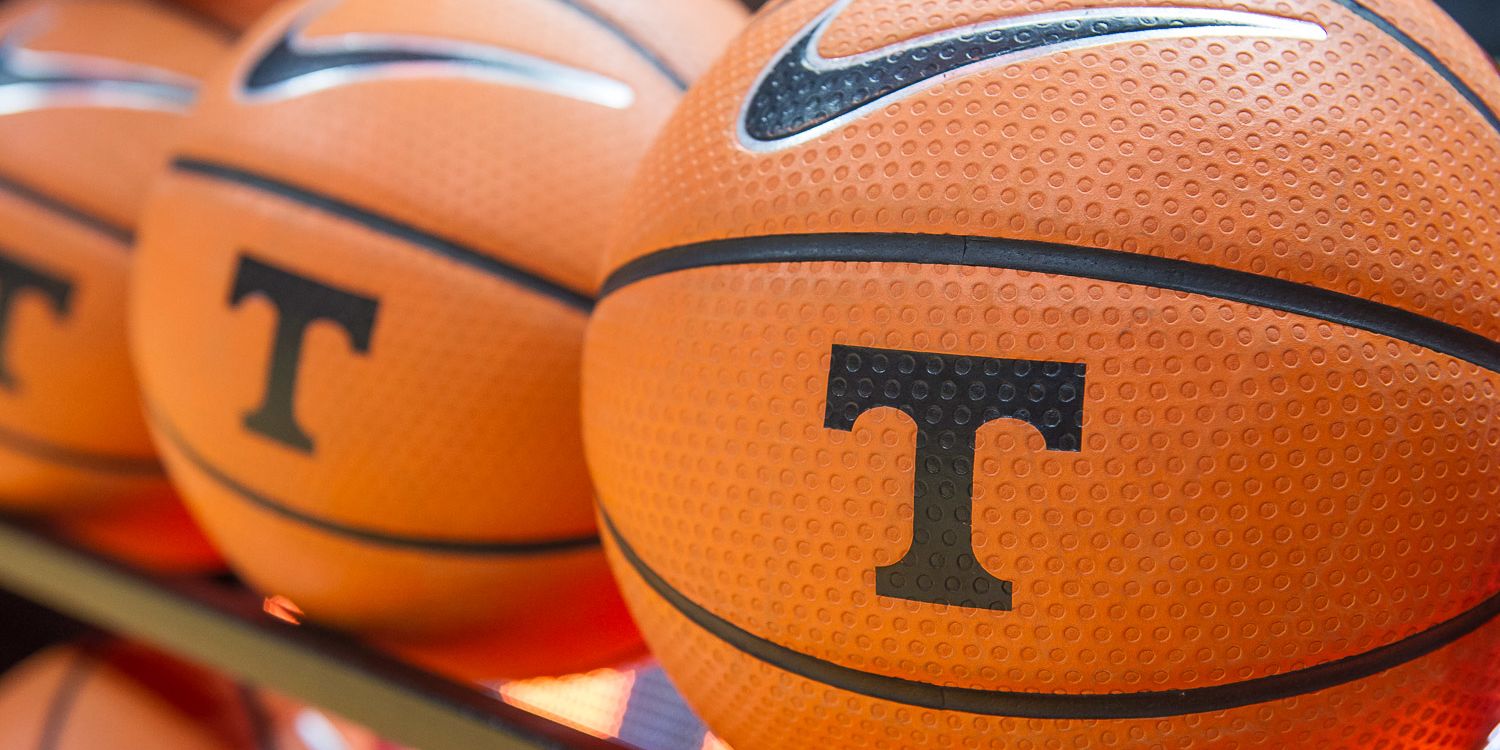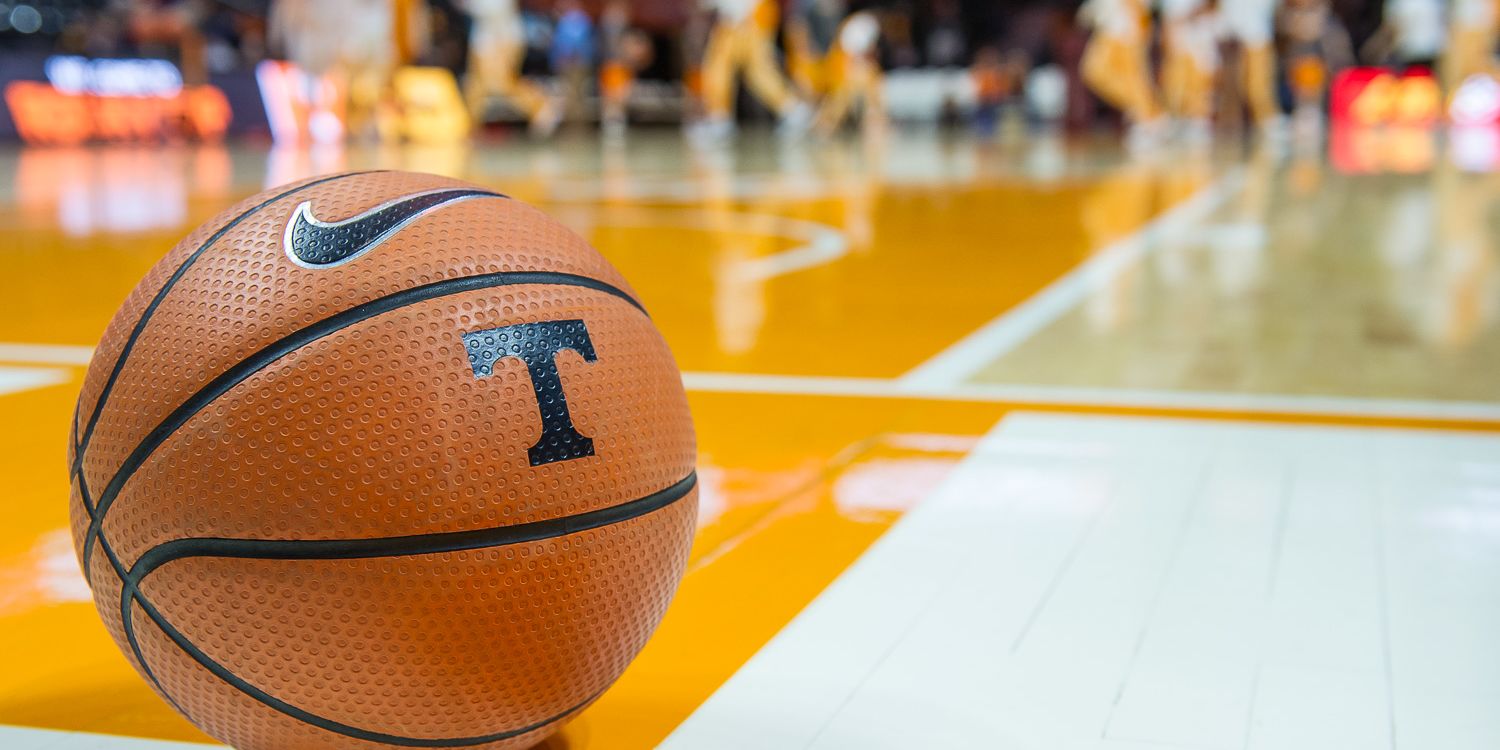In a normal year, we’d turn our eyes to basketball the week the football Vols played their November non-conference cupcake. No such delicacies are available this year, but an unexpected bye week provides plenty of opportunity. And it’s a welcome opportunity at that, given the gap between the programs at the moment.
But it’s a good moment for basketball, which returns across the land a dozen days from now. The Vols will open with a Wednesday/Friday tilt against Charlotte and VCU, and though it hasn’t been officially announced yet, we expect the third game of the season to feature Tennessee against #1 Gonzaga in Indianapolis on December 2.
And oh yes, we’ve got numbers to go with names. The Vols are 12th in the AP Poll, 20th in preseason KenPom, and the preseason favorites in the SEC in the media poll.
With the schedule, you’ll get some answers right away, and some meaningful glimpses of Keon Johnson and Jaden Springer. Perhaps Tennessee’s ultimate ceiling depends on the individual ceilings of those two. But between now and March, what are the most important ways the Vols can improve?
Bench Minutes (280th nationally last year)
We begin where we ended last time: the last piece we wrote on the Vols before the pandemic was on Tennessee’s workload, the biggest obstacle between the Vols and an SEC Tournament run. Last season Jordan Bowden played more minutes (34.4 per game) than any Vol other than Josh Richardson in the last 15 years. Yves Pons (33.9) played more than any other Vol in the last 15 years after Richardson, Bowden, and Kevin Punter, and more than any other non-guard since Ron Slay in 2003. And both Santiago Vescovi and Josiah James played right at 30 minutes per game; most freshmen at Tennessee never play more than 25.
If the Vols are healthy, I’d anticipate the opposite problem this year.
Fulkerson, Pons, Vescovi, and James are of course all back. Stud freshmen Keon Johnson, Jaden Springer, and Corey Walker join transfers E.J. Anosike and Victor Bailey as newcomers. That’s nine before you even get to last year’s bench: Olivier Nkamhoua, Davonte Gaines, Uros Plavsic and Drew Pember all got their feet in varying degrees of the fire last season.
Chemistry matters, and Barnes will need to find the right formulas. But these Vols shouldn’t have any problem with workload; none of Tennessee’s NCAA Tournament teams under Pearl, Cuonzo, or Barnes featured anyone playing more than 33 minutes per game.
Turnovers (280th last year)
Two great Tennessee basketball stories that were overshadowed by the virus last season: the win at Rupp, just eight days before the pandemic was declared, and the journey of Santiago Vescovi.
We should’ve learned from football by now to never just assume improvement. But how would Vescovi not be better at ball security after the way he arrived last season and was immediately thrown into the fire? After nine turnovers in his debut and 21 in his first three games, he did settle in somewhat, though struggled with pressure from Arkansas and Auburn (five turnovers each) down the stretch. Meanwhile fellow freshman Josiah James turned it over less, but had worse timing: six turnovers at Kansas, four in the crushing home loss to Texas A&M that followed, six in the blown opportunity at Auburn, four more against the Tigers in the home finale.
If the Vols can carve out more defined roles for both of them, it will help tremendously. We’ll then have to see how the new freshmen handle this part of the journey, but with more depth and no surprise departure from the starting point guard a third of the way into the season, the Vols should automatically be better here.
Offensive Rebounds Allowed (279th)
If there’s one area Rick Barnes’ teams seem to be consistently chasing, it’s this. Tennessee hasn’t truly been good at keeping the opponent off the offensive glass since Jarnell Stokes was around. But last year it was especially costly against specific opponents: Auburn hit the glass on 47.4% of its misses during their comeback on the Plains last year, and grabbed another 41.4% in Knoxville. The Tigers used turnovers and offensive rebounds to take away so many would-be possessions from the Vols. Texas A&M pulled off the rare feat of getting more than half of their misses, running that number up to 57.5%. The Vols went 11-2 when holding their opponents to 28% or less on the offensive glass, losing only to Florida State and Wisconsin. But it was a struggle when teams got more opportunities.
One solution this season: E.J. Anosike, a 6’7″, 245 lbs transfer from Sacred Heart who was just outside the Top 100 nationally in defensive rebounding percentage, and 32nd nationally in getting his own team’s misses. By percentage, Josiah James was Tennessee’s best defensive rebounder last year. Tennessee’s rim protection can be strong with Pons and perhaps an improved Uros Plavsic. But the Vols clearly needed some help cleaning things up after the fact, and with Anosike in the lineup could even play Pons at the three. There are already a pair of national championship rings in the Anosike family from this fine institution…
Three-Point Shooting (277th)
Statistically, the Vols were hurt here by Lamonte Turner’s shoulder (11-of-47), and then his absence. Jordan Bowden never saw the same looks he was accustomed to, and his averages of 39.5% and 37% the previous two seasons plummeted to 28.7%. That left Josiah James (36.7%) and Santiago Vescovi (36%) as Tennessee’s best shooters from deep, with Yves Pons checking in at 34.9%.
We saw a handful of would-be at-large teams struggle more than usual from the arc last season – Virginia shot 30.3%, Auburn 30.6% – but Tennessee’s 31.3% was the program’s worst since Bruce Pearl’s final season at 30%. Despite the struggles from deep, the Vols still generally ran efficient offense when they weren’t turning it over, finishing fourth in the nation in assist percentage. Some of this season’s offense will depend on the ability of the new guys to get their own shot. But if the Vols continue to play through John Fulkerson, they should continue to get decent-or-better looks elsewhere. Tennessee’s ability to put different lineups on the floor and keep all of them fresh should create plenty of opportunities for good shot selection this year…I’m curious to see who’s going to step up and knock them down.
